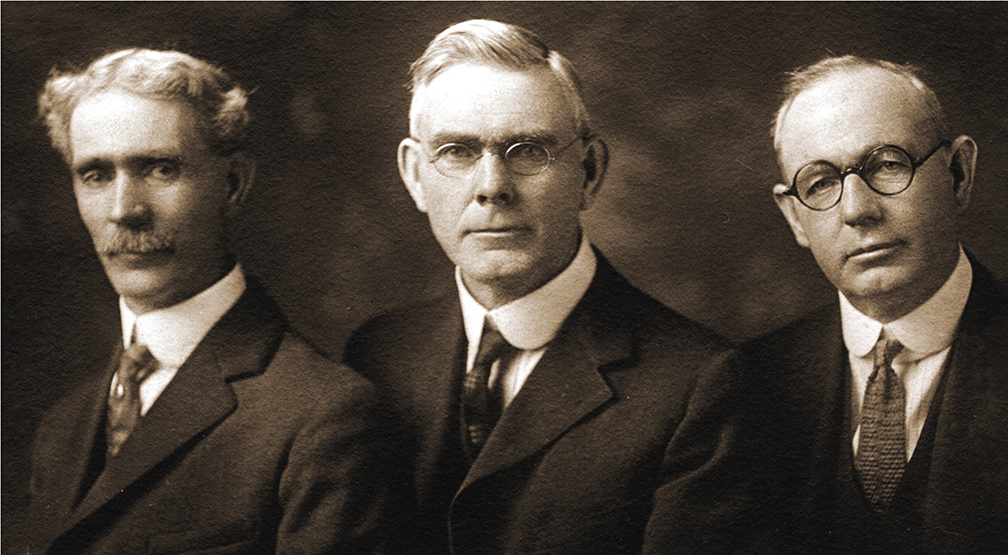Empowering Caregivers, Enriching Patient Journeys
Inspyre Health fosters connections between patients and caregivers through dialogue among healthcare providers, biotech brands, and agencies. With our Content Development Agile Framework (CDAF) and collaborations with Key Opinion Leaders (KOLs), we create resources empowering caregivers with knowledge for improved patient outcomes.
Author Interviews
Navigating Survivorship: An In-Depth Interview with Dr. April Bigelow, Author of 'Survivorship'
Join us for a compelling interview with Dr. April Bigelow, Ph.D., ANP-BC, AGPCNP-BC, as she delves into the profound insights and empowering strategies shared in her latest book, ‘Survivorship.’
Sample of 'Survivorship'
APRIL D. BIGELOW PH.D., ANP-BC, AGPCNP-BC WITH ROBIN PORTER
Page 8 - Introduction
Cancer patients and survivors often have a unique perspective on life. Although cancer is a journey patients would prefer not to take, it can also be a time of reflection and personal growth. The journey to survivorship is typically filled with many unknowns and a wide range of intense emotions, along with a crash course in the complex world of healthcare. As a traveler on this journey, you have probably learned to use your critical thinking and decision-making skills as if your life depended on it, which, in many cases, it does!
Yet, of all the patients I have cared for as a nurse in the emergency department for 20 years and now as a nurse practitioner in critical care and palliative care for the past 10 years, it is the cancer patient who is the most resilient, inspiring, and amazing to work with. Many of these patients have mastered the ability to take an active role in their healthcare, think outside of the box and explore complementary therapies that give them strength and hope by improving their quality of life.
As a palliative care nurse practitioner and researcher, I focus on treating the whole patient, including their symptoms and side effects, with hopes of improving their quality of life. While cancer treatment has advanced tremendously over the years, the primary emphasis is on treating the disease, which often fails to address many of the physical, mental, and emotional effects of cancer and its treatments. That’s where integrative medicine and complementary therapies come in— to fill the gap left from traditional treatments.
Page 21 - Section 2
When it comes to cancer treatment, we’ve come a long way over the years. Thanks to the latest medical advances, most cancer patients live for many years after being diagnosed. However, while conventional treatment provided by oncologists has increased longevity, it has sometimes neglected other aspects of care. For instance, while evidence-based, conventional treatment can be extraordinarily successful at eradicating a tumor, it typically fails to address a patient’s physical and emotional symptoms. That’s where complementary (integrative) therapies come into play.
Fortunately, most cancer centers recognize the importance of these adjunct therapies and are now offering them to patients. Complementary therapies do not treat the cancer itself, but rather effectively control physical and emotional symptoms and promote general health and well-being. These therapies may include diet, exercise, meditation, self- hypnosis, yoga, acupuncture, music therapy, massage, and more. Used in conjunction with conventional treatment, these complementary therapies can relieve stress, manage symptoms and side effects of treatments, and improve overall well-being.
Important note: Complementary therapies should never be used instead of conventional cancer treatment. No “alternative” treatments have been shown through research to cure or treat cancer. Patients should beware of false remedies or “miracle cures” touted by unreputable sources, such as naturopathy, Ayurveda, herbalism, homeopathy, special diets, oxygen therapy, bioelectromagnetism, and others.
Page 53 - Section 3
While cancer treatments have become more targeted and effective over the years, the side effects of these treatments can still be difficult to manage. Traditional therapies, such as surgery, chemotherapy and radiation can each cause a variety of side effects, from nausea and appetite loss to fatigue and depression. In addition, the disease itself may cause a host of symptoms such as pain or swelling, depending on the location and type of cancer.
Unfortunately, many patients feel that these side effects and symptoms are not adequately managed by conventional approaches alone. That’s where complementary therapies come into play. When combined with conventional treatments, complementary therapies can often help alleviate symptoms and side effects. In some cases, a single modality, such as dietary changes or physical therapy can provide relief. However, most cancer patients find that using a combination of complementary therapies, along with conventional approaches provides the most effective results.
In this section, we’ll discuss the most common symptoms and side effects and provide suggestions for complementary therapies that may help. Keep in mind, every patient is unique, and as such, side effects and symptoms can vary from person to person. Additionally, each patient may respond differently to complementary therapies. What works for some patients may not work for others. While consulting with your healthcare team, you should explore all the options available until you find therapies that provide relief for you.
Get your copy now!
Patient Testimonials
Inspiring testimonials from our readers

John G., Dallas, Texas
“Before receiving a copy of Promoting Wellness for Advanced Prostate Cancer from my doctor, I felt lost in the maze of my diagnosis. I was too embarrassed to ask questions and didn't even know where to start. This book was a beacon in that confusion. It's organized in a way that not only educated me as a newly diagnosed patient but also spoke in clear terms that both my wife and I could understand. Now, each doctor's appointment is an opportunity for productive dialogue. I come prepared with questions, and we discuss my condition and treatment options with a sense of partnership and clarity. This book has truly transformed the dynamic with my doctor, making our interactions far more meaningful. As my journey with prostate cancer progresses, the wealth of information continues to be a source of strength and understanding. The insights gained from this book, combined with my journey through prostate cancer, ignited the inspiration for me to create my own book about prostate cancer from the patient's perspective. Additionally, I established Score Men's Wellness - a brand and society about this number two cancer kill of men." (John G., Dallas, Texas www.scoremenswellness.com)
About Inspyre Health

Inspyre Health’s roots reach back to Edwards Brothers Publishing, which was established in 1893 by three Ann Arbor-area brothers. During its 130+ years in business, it grew into one of the largest independent book and journal printers in the United States.
The Edwards brothers’ legacy of providing top-quality books and informative, clear content lives on through Inspyre Health CEO Jim Edwards, the great-grandson of one of the original founders. Because he grew up working in the business, Jim understood the value of exceptional content and superior service from an early age.
Inspyre Health’s health and wellness books have been recognized by Independent Publisher, a publication for independent publishers, booksellers and authors, with Excellence in Book Publishing and gold, silver and bronze Living Now awards.